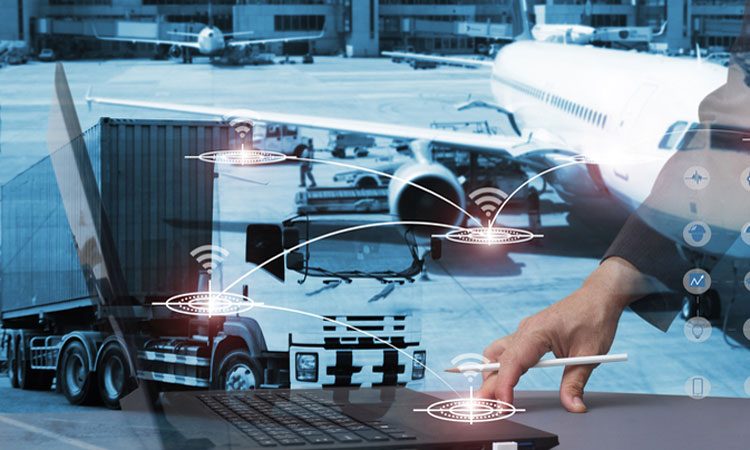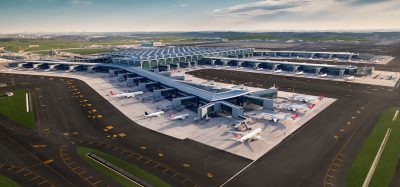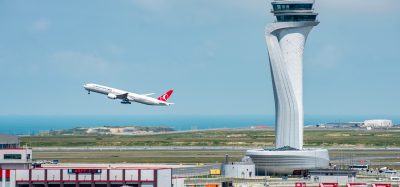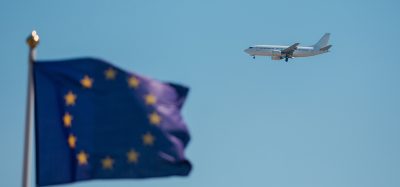Major UK research institution sets out goals for tackling rising passenger numbers
- Like
- Digg
- Del
- Tumblr
- VKontakte
- Buffer
- Love This
- Odnoklassniki
- Meneame
- Blogger
- Amazon
- Yahoo Mail
- Gmail
- AOL
- Newsvine
- HackerNews
- Evernote
- MySpace
- Mail.ru
- Viadeo
- Line
- Comments
- Yummly
- SMS
- Viber
- Telegram
- Subscribe
- Skype
- Facebook Messenger
- Kakao
- LiveJournal
- Yammer
- Edgar
- Fintel
- Mix
- Instapaper
- Copy Link
Posted: 17 July 2018 | International Airport Review | No comments yet
A major aerospace research institution has set out its main goals for dealing with problems arising from the magnitude of passengers expected to use the air transport in the coming decades.


UNLOCKING POTENTIAL: UK passenger numbers are expected to increase by 49 per cent by 2050
Cranfield University has announced five primary research challenges its new Digital Aviation Research Centre (DARTeC) will set out to tackle when it opens in early 2020.
The university, one of the UK’s leading research institutions for the aerospace sector, published a whitepaper entitled ‘Addressing the digital aviation challenge’ outlining how the consortium behind DARTeC intends to make significant changes to digital aviation for the British and global aviation sector.
The exponential growth of air travel is not expected to slow, with an anticipated increase of 49 per cent by 2050. DARTeC looks to solve the problems that arise from this magnitude of passengers in ways other than airport expansion and ground infrastructure development; digital aviation.
The group has identified five primary research areas.
- Connected systems – developing digital systems that will operate at speeds that the current aircraft condition monitoring system (ACARS) and the aircraft condition monitoring system (ACMS) are not capable of producing.
- Unmanned traffic management – developing airspace management solutions that will bring higher levels of system resilience, safety and security while adapting to competition from UAVs to operate in the same airspace.
- Seamless passenger experience – developing a more personalised, intuitive and less stressful passenger experience by using digitally integrated technology to examine challenges such as unified security, the elimination of triple waiting areas, optimised passenger flows and baggage separation.
- Distributed airport and airspace management – developing the next generation of air traffic control in an environment of steadily increasing air traffic density and ‘on-demand’ requests
- Conscious aircraft – developing technology and systems that would allow aircraft to monitor its current health, allowing it to reliably predict the useful life or components and systems, while automatically adapting to optimise their remaining life.
Professor Graham Braithwaite, Project Lead and Director of Transport Systems at Cranfield University, said: “Aviation is a key sector for the UK economy contributing £52 billion to UK GDP but the sector’s present rate of growth is simply not sustainable.
“We need new digital solutions to tackle the challenges of over-capacity in both airports and airspace, we need to create passenger experiences more fitting of the 21st century and we need to create more sustainable air travel. Working with our partners, DARTeC will greatly advance the application of innovative technologies within the air transport sector and will unlock the potential of digital aviation.”
Picture: 558709405
Related topics
Air traffic control/management (ATC/ATM), Drones, Engineering, New technologies, Passenger experience and seamless travel
Related organisations
Cranfield University, Digital Aviation Research and Technology Centre (DARTeC)
Related regions
Africa, Asia Pacific and Oceania, Central and South America, Central and South Asia, Europe, Middle East, North America, United Kingdom and Ireland


















